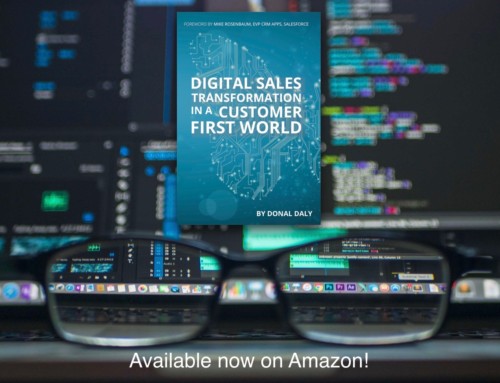Six months ago, I wrote an article about the power of human connection and how technology helps us stay connected. Since then, I have engaged in even more daily conversations about the importance, yet current lack, of human connection. The conversations range from discussions of customer engagement, employee-employer relations, and good old-fashioned personal relationships. Why is it that this discussion has gotten so much press in the last few years? The underlying theme I keep coming back to is the impact of technology on human interaction.
There is no question that I am an advocate for technology, innovation, and social selling. Where people go sideways is when they believe that the use of technology can replace the need for human interaction, connection, and empathy. I had a recent conversation with a fellow business consultant who stated the he spoke with a Customer Success executive who said, “in our ideal customer success engagements, we won’t ever have the need to speak with any of our customers. Technology will tell us everything we need to know.” Upon hearing this, my jaw nearly dropped to the table. Admittedly, I thought he was joking. How can we truly understand and service our customers if we do not listen to and speak with them about their needs? My belief is that we cannot provide optimal service without listening and having empathy for those with whom we serve with our products and services. Relationships are essential for companies and their customers to thrive.
When I read about employer-employee relations, article after article discusses that the most successful companies put culture first. Healthy, innovative, and positive company cultures depend on human interaction. Carlos Ghosn, former CEO of Nissan, emphasizes this point of view when he was quoted as saying “A leader needs the ability to engage with people. When you’re heading a company, people need to connect with you. If they see you as stiff or cold or not easy to understand, they’re not going to listen to you, and a lot of motivation and engagement is going to be lost. In other words, a leader must have the capacity for empathy.” In other words, employees will thrive in corporate environments where they feel heard, respected, and understood.
In Fortune’s 100 Best Companies to work for in 2017, it is not surprising that Google ranked #1. Google, like most of the top 100, says that culture is tantamount to its success. “(Google) also takes a rigorous analytical approach to morale. It boosted its parental-leave policies, for example, after finding that mothers were leaving at higher rates—the result was a 50% reduction in attrition for working moms. And then there’s the culture: Town halls held by black Googlers and allies, support for transgender workers, and unconscious-bias workshops (already attended by more than 70% of staff) help foster what employees say is a “safe and inclusive” workplace at this hive of high performers.” Simply said, top companies put human connection at the center of their attention. Technology in this case is an enabler rather than an inhibitor of meaningful relationships.
Finally, the overarching category of human connection is that of personal relationships. Personal relationships rely on emotional vulnerability, transparency, trust, and gratitude. Technology will never replace these uniquely human characteristics. In today’s revolution of the Internet of Things, artificial intelligence, and virtual reality, we must appreciate these technologies for what they enable. They give us unique ways of connecting humans to humans, humans to things, and things to things. We can gather an inordinate amount of data that gives us more insights than ever before. But, what technology will never replace is the power of people sitting around the table, sharing, listening, understanding, challenging, and encouraging one another.
In the words of Steve Jobs, “Technology is nothing. What’s important is that you have a faith in people, that they’re basically good and smart, and if you give them tools, they’ll do wonderful things with them.”





